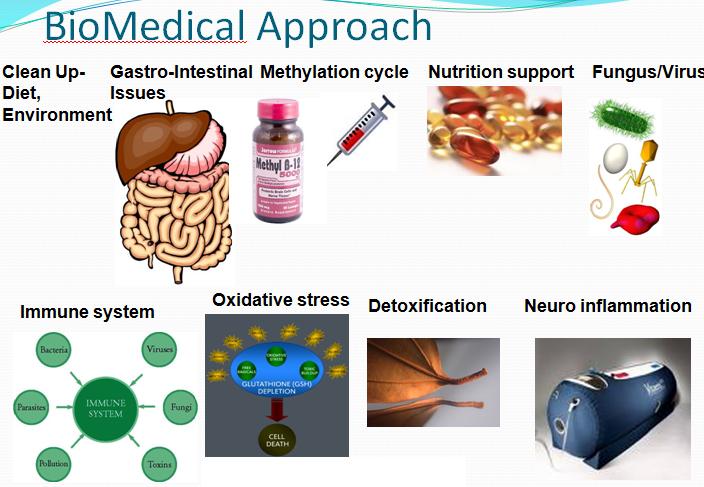THE EFFECT OF BIOMEDICAL INTERVENTION……

…… replacing the ‘harm-ies’ in your child’s diet with healing foods.
Children with additional needs often experience difficulties in certain areas of development including language, mobility, learning, self-help, independent living etc. Some common examples are children with Down Syndrome, Cerebral Palsy, Autism Spectrum Disorders and intellectual Disability. Particularly with autism and other related conditions, research has shown that the most effective therapy is the use of intensive behaviour interventions that aim to improve the functioning of the child. These interventions focus on developing language, social responsiveness, imitation skills, and appropriate behaviours. However, a holistic management of any childhood disability requires a focus, not just on its symptoms but also its underlying cause.
Hence, the need for a biomedical treatment in addition to Psychosocial lnterventions. While parents are keen to seek psychosocial interventions for their child, they seem to be less informed about the benefits of biomedical treatments. Biomedical treatment is an evidenced based systematic approach to treating the underlying factors that predispose or exacerbate symptoms associated with some childhood disabilities, say autism, inside the body. It refers to the process of redressing the anomalies in the child’s biochemistry through the use of specific nutrients. Biomedical intervention is a major tool used by some medical practitioners to aid the recovery of children with autism spectrum disorders.
Interestingly, Biomedical intervention is not only beneficial to children with additional needs, but also typically developing children (and some adults) experiencing food sensitivities, allergies and reactions, immune system compromise and poor gut functioning. Benefits include improvement in gut and bowel function, improved appetite and a wider variety of foods tolerated, and improvements in immune function resulting in much healthier children that are resistant to coughs, colds, ear infections, runny nose, allergies etc. There are other reports that suggest this approach to also positively influence a child’s social, communication and cognitive functioning skills. Biomedical treatment is managed by a physician with knowledge (in the specific areas) and treatment is individualized to each child’s particular needs.
FORMS OF BIOMEDICAL INTERVENTION
Depending on the child’s particular presentation, a biomedical intervention plan can follow any of the following procedures:
- Dietary interventions e.g. GFCF, Feingold, specific carbohydrate diet, low oxalate diet, going organic, or allergy removal.
- Normalize Essential multivitamins and nutrients which help with removal of toxins, replenish the already depleted nutrients in the body.
- Support detoxification pathway
- Heavy metal detoxification – Chelation.
FOCUS / AIM OF BIOMEDICAL TREATMENT
- Clean up the internal biochemistry environment of the child
- Clean up the diet and heal the gut
- Boost the immune system
- Targeted treatment of constipation, diarrhea, sleep, yeast, clostridia sleep, hyperactivity, aggressiveness, bacteria and parasitic issues
TIPS ON HOW TO START
- Educate yourself on these dietary options through your own reading and research; this gives you foundational information to work with.
- Get your child assessed by a trained Biomedical expert. Through extensive history, physical examination, and careful laboratory analysis, a comprehensive therapeutic plan will be created for your child.
- Ease your way in. Starting the diet isn’t easy, but you can do it. If your child is young, don’t delay. Typically, younger children adapt more readily to dietary changes and it’s easier to control their access to food.
- Read labels carefully when buying supplements, foods, snacks. You can make your own snack.
Biomedical intervention is so crucial in healing your child’s mind and body so she/he will have the clarity of mind to learn in school and also be receptive to behavioural and speech therapy. To achieve optimum benefits for your child is to embrace tested eclectic approaches to interventions that are holistic and suitable to the needs of your child.
As with all forms of intervention, early intervention is key to a higher success rate; start early!

